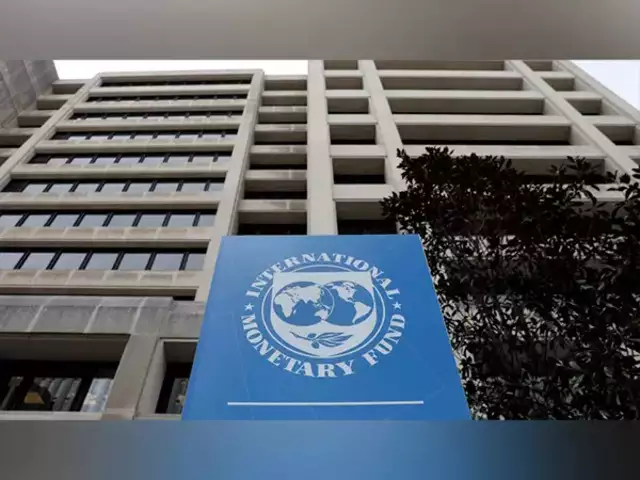PTBP Web Desk
The Economic Affairs Division (EAD) has acknowledged that there is no transparent mechanism in place to verify whether loans acquired from the International Monetary Fund (IMF) are being properly utilised for budgetary support or balance of payments management.
The revelation came during a session of the Senate Standing Committee on Economic Affairs, chaired by Senator Saifullah Abro, held on Friday. The meeting focused on IMF fund utilisation, repayment records, and debt accountability, raising serious questions about Pakistan’s financial governance and transparency.
During the session, EAD officials admitted that while Pakistan receives substantial funds from the IMF, there is no clear audit trail confirming how these funds are deployed. The Committee reviewed the implementation of previous recommendations related to IMF programmes — including disbursement details, repayments, year-wise interest payments, and a comprehensive external debt breakdown.
Senator Saifullah Abro, expressing concern, said that successive governments have repeatedly claimed to reduce dependency on IMF programmes, yet no transparent data exists to verify repayments or track loan expenditures.
“Aggregate figures are available, but the lack of a clear audit mechanism means Parliament cannot confirm whether IMF loans are serving their intended purpose,” the Chairman remarked.
Senator Hidayatullah Khan raised a key question about whether IMF funds categorised under grants or balance of payments support were genuinely used for structural economic reforms. Similarly, Senator Syed Waqar Mehdi questioned whether the utilisation targets for IMF loans were being met.
In response, EAD officials admitted that while targets and project outlines do exist, systemic transparency and real-time visibility of fund use remain limited.
When the Chairman asked for details regarding the Extended Fund Facility (EFF) of SDR 3.334 billion, the representative of the Finance Division was unable to provide a satisfactory explanation.
The committee was informed that as of June 30, 2025, Pakistan’s total external debt liabilities had reached USD 126 billion, including USD 82.5 billion in external public debt and USD 43.5 billion in government-guaranteed loans.
Senator Hidayatullah Khan requested complete year-wise data on external debt and IMF liabilities for 2008, 2013, 2018, 2022, and 2024. The Chairman endorsed the suggestion, stressing the need for accurate, verified figures to ensure proper parliamentary oversight.
The EAD was directed to present a comprehensive debt breakdown to the committee, detailing project-wise allocations, creditor categories, and year of contracting since 2008.
Committee members expressed displeasure over the absence of Minister for Economic Affairs Ahad Cheema, emphasizing that his presence was critical for informed discussions and policy accountability.
Unspent Funds and Mismanagement in Multan’s Heritage Project
The Senate committee also reviewed the issue of unspent development funds meant for the renovation and restoration of Multan’s historic core.
Officials informed that the project, with a total cost of Rs 850 million, had been divided into two phases. However, the Chairman expressed alarm over Rs 679 million in unspent funds, which had been redirected to other projects without proper reporting or approval.
The committee learned that Rs 170 million had already been spent merely on feasibility reports, while the project was later transferred from the federal to the provincial government.
Lawmakers criticised the lack of proper financial discipline and demanded that any reallocation of funds must follow transparent and well-documented procedures.
The committee also reviewed ongoing power sector projects, particularly the procurement of STG goods under the Asian Development Bank (ADB)-funded Power Distribution Strengthening Project, managed through Lahore Electric Supply Company (LESCO).
Officials informed that a USD 80 million loan had been signed for the project’s STG component, and procurement across eight lots was in progress. However, Senator Abro raised concerns over procedural inconsistencies and possible violations of public procurement laws.
After a detailed briefing by the Managing Director of the Public Procurement Regulatory Authority (PPRA), the committee concluded that LESCO had violated PPRA regulations. The Joint Secretary (Power Division) also conceded that rules were not followed during the bidding process.
The committee noted that lowest bidders were arbitrarily declared non-responsive, and in some cases, a bidder declared responsive for one lot was marked non-responsive in another, raising suspicions of irregularities.
Separately, Senator Falak Naz raised concerns about deteriorating access roads in Chitral, which are affecting tourism and local livelihoods.
Officials from the National Highway Authority (NHA) informed that 85 percent of the rehabilitation work had been completed, with the remaining expected by November 2025.
To ensure accountability, Senator Saifullah Abro announced that the next committee meeting will be held in Chitral, where members will review progress on-site. The committee also directed that representatives from the provincial government be invited to attend and coordinate directly with the NHA.




